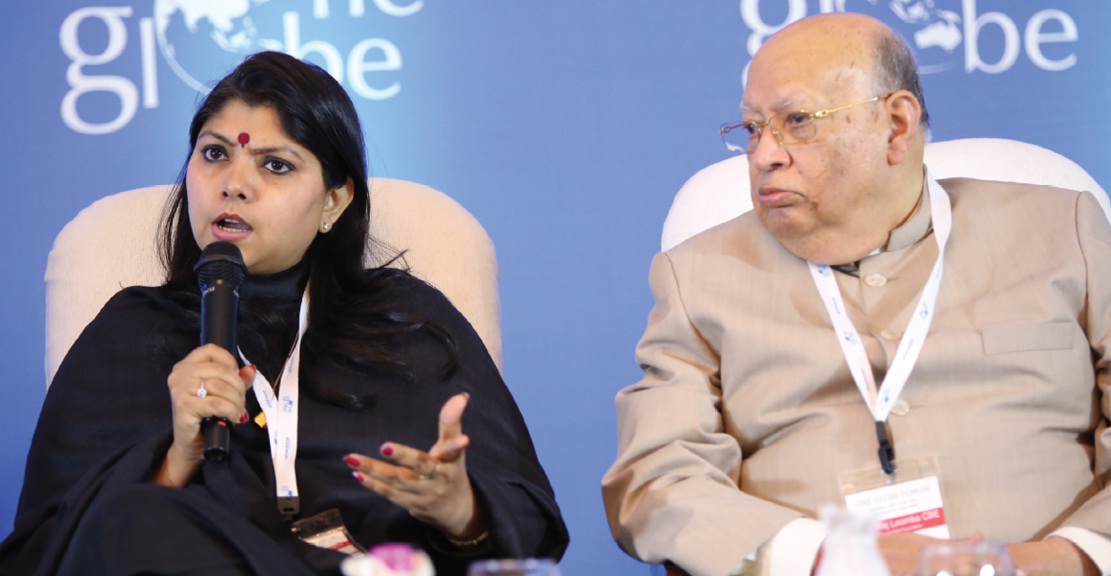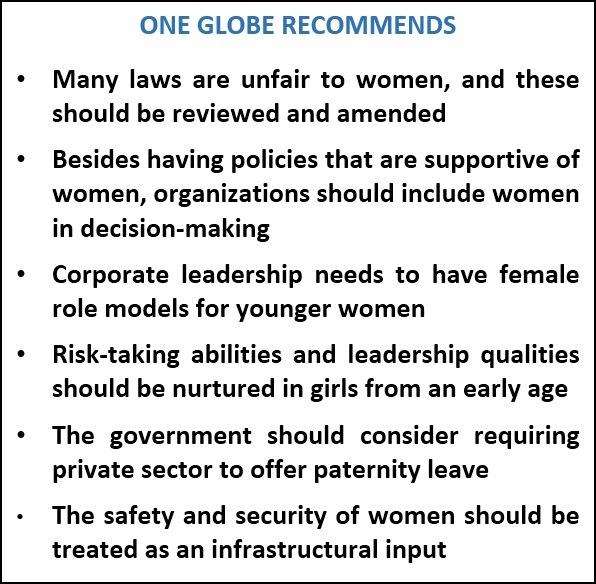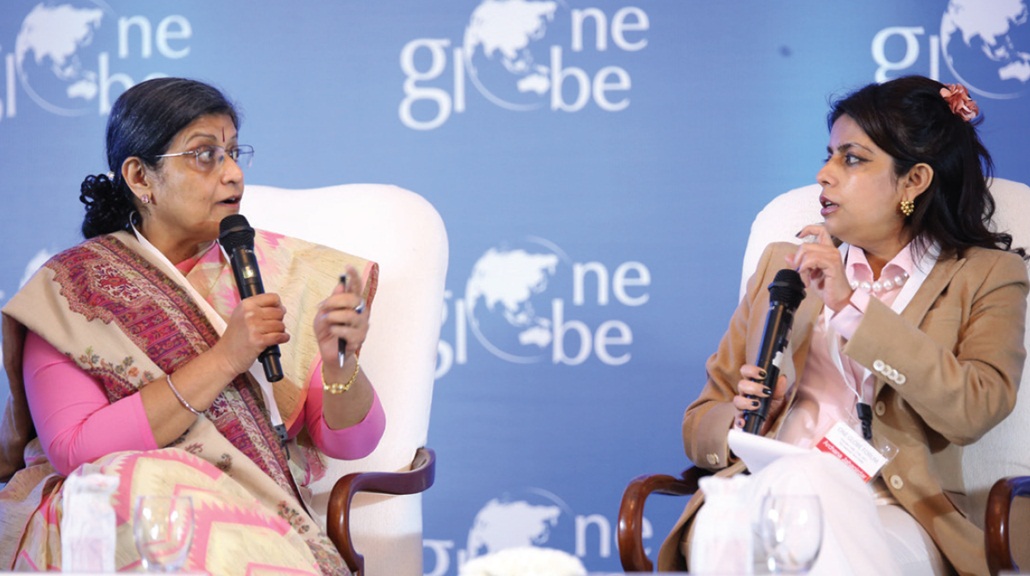India needs to focus on economic empowerment of women
Posted by Admin on January 08, 2018

Ms. Vaishali Nigam Sinha (CEO, iCharity), and Lord Raj Loomba, CBE (Founder & Chairman Trustee, The Loomba Foundation)
 |
At a panel titled ‘Women’s Economic Empowerment – Towards a More Equal World’ at One Globe 2017, Lord Raj Loomba CBE, Founder & Chairman Trustee of the Loomba Foundation, noted that even a century after women first got the right to vote, the disparity between men and women remained high, not just in India but around the world, in terms of access to livelihoods, representation in government, participation in private-sector organizations, and so on. His Foundation, which is celebrating its 20th anniversary this year, is devoted to empowering women. “We have supported children of poor widows and empowered their mothers in India and 12 countries in Africa and South America,” he said.
Fellow panelist Vaishali Nigam Sinha, CEO of iCharity, concurred: “We’ve come a long way, there have been a lot of accomplishments… but there is still a big gap between what needs to be done and what is being done.”
She said, “If you look at the laws, you can easily come up with a list of laws that are unfair to women – inheritance, marriage-related laws.” She gave the example of the legal age for marriage, which is lower for women (18 years) than men (23 years), as this has an impact on women’s education and various aspects of the economy. “We need to work hard, to have a voice. And when I say ‘we’, I think the agenda for women cannot be different from that for men,” she said. “Working with other stakeholders is a very important part of the story.”
Ms Nigam Sinha noted that our workplaces are a reflection of how we are raised. She asked, “In an average family in India, are we included in certain types of decisions which have an economic impact?”
She added, “It’s important to have policies that are supportive of women, but it’s not enough. Including women in decision-making is important. So is having women in leadership roles, as role models.”
Panel moderator Archana Jahagirdar, who is CEO of IAN Incubator, underscored the fact that despite having a woman prime minister and a woman president, India lacked female role models in corporate leadership.
Panelist Sutapa Sanyal, Director General, UP Police Mahila Samman Prakoshth, highlighted the considerable cost of excluding women, citing a 2015 McKinsey report that outlined the measurable impact of gender parity on GDP. Ms. Sanyal noted that of the 144 countries listed in the Global Gender Gap Index, India ranked 136th in terms of women’s economic participation.

Ms. Sutapa Sanyal (DG, UP Police Mahila Samman Prakoshth) and Ms. Archana Jahagirdar (CEO, IAN Incubator)
She then moved on to the question of what prevented women – 50% of the population – from joining the workforce. “Gender stereotyping leads to gender inequality, and that leads to gender-based violence... If we could somehow fix this, there could be more women in the workplace,” she noted. She advocated that the safety and security of women be treated as an infrastructural input.
Lord Loomba raised the issue of rural-urban differences, saying, “Women’s empowerment in urban areas is getting better. However, in rural areas there is a huge problem. In India, 70% of women live in rural areas. They are uneducated, there are no jobs available, they are dependent on family members who are not very kind to women. Widows in rural areas live as modern slaves.” He suggested that the government involve panchayats in addressing widows’ problems. “There are 259 million widows around the world, of which 46 million are in India,” he said. He added that there were 584 million widows’ children worldwide.
Turning to entrepreneurship as a way of economically empowering women, Ms Nigam Sinha noted that a defining characteristic of entrepreneurs was the ability to take risks. “Do we raise our girls as risk-takers?” she asked. “For women who want to become serious entrepreneurs, taking risks, being a disrupter, believing in yourself, is crucial. I think that has to do with the way we’re raising girls.”
Ms Sanyal added that a larger social change was necessary, given India’s patriarchal structures and traditions, and its culture of silence and victim-blaming in instances of abuse of women. She noted that the patriarchal mindset could exist in women also. “Culture is not confined to men,” she said.
Ms Nigam Sinha also emphasized that a woman entrepreneur could not do everything herself; she needed a network. Also, with regard to policy and government, a lot remained to be done, she added. Drawing upon Ms Sanyal’s argument that security changed women’s lives, she cited the simple example of how installing lights in a village could contribute to empowering women.
She noted that the government can and does offer incentives to rural women to promote entrepreneurship, and that private organizations could also do so, and could collaborate with government on such schemes.
Ms Sanyal emphasized the role of good governance in terms of transparency, accountability, and connecting citizens, adding that the government and private sector needed to work hand-in-hand, not in silos. Ms Jahagirdar emphasized the need to create more pressure groups to shape policies and ensure implementation.
Lord Loomba said the Indian government should consider requiring companies to provide paternity leave to promote parity not just in the workplace but also in the home. He said that this would give women greater freedom to pursue their careers.
He said: “I would like to see in my own lifetime – and there’s not long to go, because I’m already 73 – that women and men are treated equally.”








